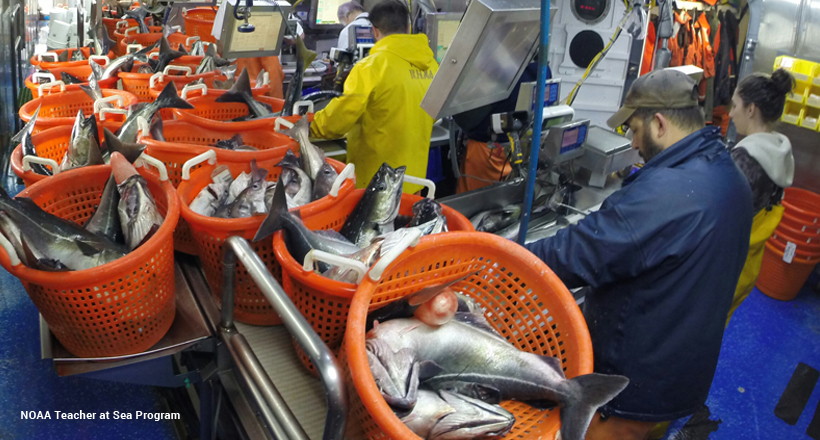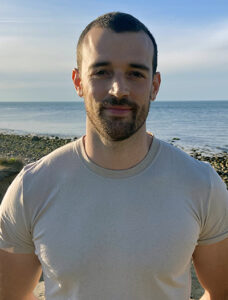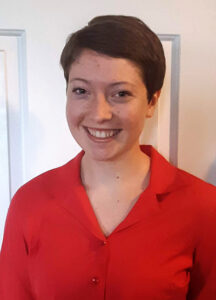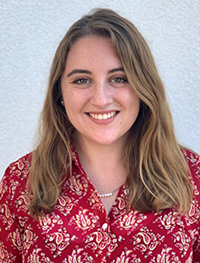OCEANS
Climate Change Shrinks Many Fisheries Globally, Rutgers-Led Study Finds
Researchers find losses as high as 35 percent in some regions
RUTGERS TODAY–Climate change has taken a toll on many of the world’s fisheries, and overfishing has magnified the problem, according to a Rutgers-led study in the journal Science today.
Ocean warming led to an estimated 4.1 percent drop in sustainable catches, on average, for many species of fish and shellfish from 1930 to 2010. In five regions of the world, including the East China Sea and North Sea, the estimated decline was 15 percent to 35 percent, the study says.
“We recommend that fisheries managers eliminate overfishing, rebuild fisheries and account for climate change in fisheries management decisions,” said Chris Free, who led the research while earning a doctorate at Rutgers and is now a postdoctoral scientist at the University of California, Santa Barbara. “Policymakers can prepare for regional disparities in fish catches by establishing trade agreements and partnerships to share seafood between winning and losing regions.”
Seafood has become an increasingly important source of nourishment as the world population has grown, especially in coastal, developing countries where it provides up to half the animal protein eaten. More than 56 million people worldwide work in the fisheries industry or subsist on fisheries.
“We were stunned to find that fisheries around the world have already responded to ocean warming,” said Malin Pinsky, study coauthor and associate professor in Rutgers’ Department of Ecology, Evolution, and Natural Resources. “These aren’t hypothetical changes sometime in the future.”
The study reports that the effects of ocean warming have been negative for many species, but also finds that other species have benefited from warming waters.
“Fish populations can only tolerate so much warming, though,” said senior author Olaf Jensen, an associate professor in Rutgers’ Department of Marine and Coastal Sciences. “Many of the species that have benefited from warming so far are likely to start declining as temperatures continue to rise.”
Scientists at Rutgers–New Brunswick and the National Oceanic and Atmospheric Administration studied the impact of ocean warming on 235 populations of 124 species in 38 ecological regions around the world. Species included fish, crustaceans such as shrimp, and mollusks such as sea scallops.
The scientists combined global data on fisheries with ocean temperature maps to estimate temperature-driven changes in the sustainable catch (known as the maximum sustainable yield) from 1930 to 2010. Their analysis covered about one third of the reported global catch, and losing species outweighed the winners as the oceans warmed.
The greatest losses were in the Sea of Japan, North Sea, Iberian Coastal, Kuroshio Current and Celtic-Biscay Shelf regions. The greatest gains occurred in the Labrador-Newfoundland, Baltic Sea, Indian Ocean and Northeast U.S. Shelf regions.
“Something I think is unique about this study is that we quantified effects that have already occurred to fisheries, rather than forecasting the future, which is much more fraught with uncertainty,” said coauthor Kiva Oken, a former postdoctoral scholar at Rutgers who is now a scientist at the University of Washington.
Overfishing provides a one-two punch to fisheries facing warming waters. Overfishing not only makes fisheries more vulnerable to ocean warming, but continued warming will also hinder efforts to rebuild overfished populations, the study says.
An important next step is to understand the impacts of ocean warming on tropical regions, where data are limited, according to Free. These regions rely heavily on coastal fisheries as a source of food and livelihoods. Another important step is to learn more about other potential impacts on ocean fisheries. Aside from ocean temperatures, ocean oxygen content, acidity and productivity are also changing and may influence fisheries.
John Wiedenmann, an assistant professor in Rutgers’ Department of Ecology, Evolution, and Natural Resources, and Jim Thorson at NOAA’s Alaska Fisheries Science Center contributed to the study.



 Angel Alguera
Angel Alguera Daniel Gilkeson
Daniel Gilkeson Benjamin Goldberg
Benjamin Goldberg Surya Jacob
Surya Jacob Vineesh Das Kodakkandathil
Vineesh Das Kodakkandathil Douglas Leung
Douglas Leung Nihar Mhatre
Nihar Mhatre Justin Morris
Justin Morris Josephine O’Grady
Josephine O’Grady Jessica Parineet
Jessica Parineet Dillan Patel
Dillan Patel Moira Sweeder
Moira Sweeder